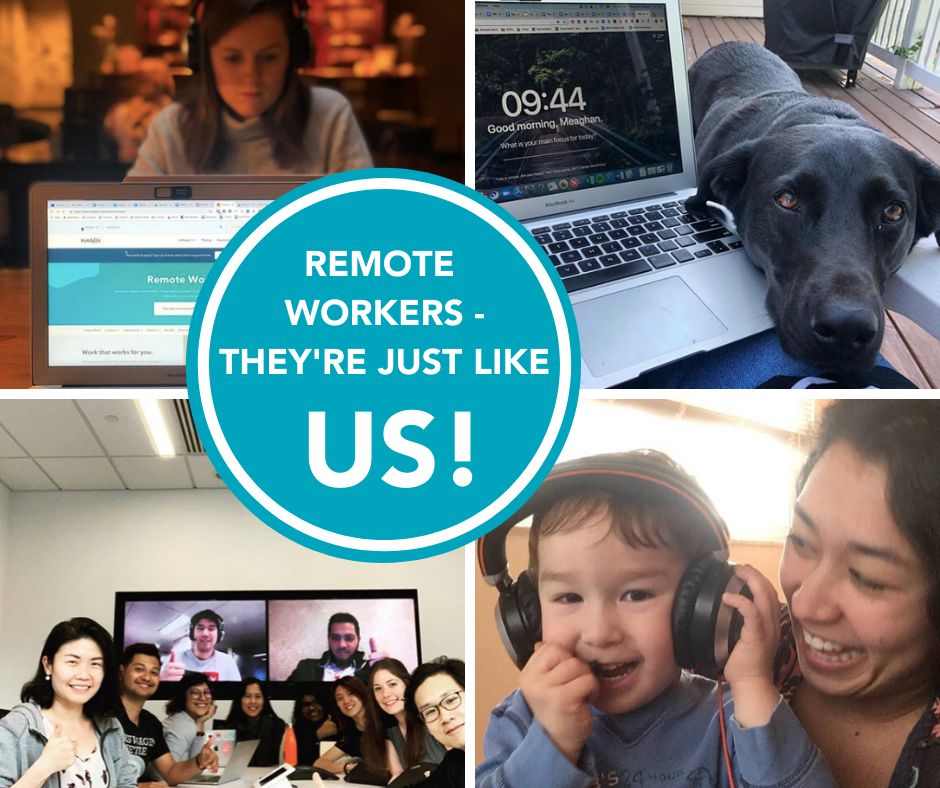HubSpot Reveals the Findings from its 2019 Remote Work Report

There’s no doubt that the job market has become increasingly competitive (dare we say Hunger Games-esque?). One of the ways companies are expanding their talent pool is by offering remote work. Today, 53% of professionals work remotely for at least half the week, and there are approximately 170 companies in the U.S. that are fully remote. Compare that to just a few years ago when there were only 26 companies that operated 100% virtually in 2014.
At INBOUND this year, HubSpot CTO and co-founder Dharmesh Shah shared insight into our own views on remote work. In addition to revealing that we now have more than 200 remote employees globally, and that “remote” is the second-most searched word on our careers page, Dharmesh introduced a new business principle called the Pajama Principle, which is the idea that “success is proportional to the degree in which you let people work in their pajamas.”
The popularity of remote work has brought a lot of myths about remote workers- from staying in your PJs all day, to binge watching Netflix Monday through Friday. And it's risky to build a culture based on myths.
That’s why, as HubSpot's remote community has grown rapidly since 2007, we've been eager to learn more about our remote community and understand what an amazing employee experience looks like when you're not coming into an office every day. What’s different about the values, behaviors, and working styles of remote employees? What’s the same? So, we decided to take to the streets to get to the bottom of what it really means to work remotely.
Introducing the 2019 Remote Work Report
From what remote workers are motivated by, to how much vacation they take, and the number of cups of coffee they drink daily, we surveyed thousands of fully remote workers - both HubSpot employees globally, and non-HubSpot working professionals across the United States, U.K. and Ireland.
Our 2019 Remote Work Report revealed that, drum roll please, remote workers actually have a lot in common with non-remote workers. Or as Us Weekly Magazine might say: Remote workers, they’re just like us! So if you always thought 'remote' was synonymous with 'watching TV in bed', think again.

Here are some of the lifestyle findings from the report:
- 35% of HubSpot remote workers say they are most motivated by money, with 29% motivated by career growth. (Tweet this)
- 74% of non-HubSpot remote workers say that working remotely increases productivity. (Tweet this)
- 55% of those surveyed describe themselves as introverts, and 45% describe themselves as extroverts. (Tweet this)
- Approximately 40% of all respondents say they take around 2-3 weeks of vacation a year, compared to the average American who used 17.4 days of vacation in 2018. (Tweet this)
- 23% of all remote workers surveyed find jobs through LinkedIn, and 32% through word of mouth. (Tweet this)
- 70% of all remote workers surveyed say they get ready for work in under 30 minutes. (Tweet this)
While remote workers and your colleagues in the office have a lot in common, there are key considerations that employers’ can all improve upon to make the remote experience a more inclusive and positive one. The report found that a lack of social connection and communicating with co-workers were the top challenges that remote workers face daily. Additional findings related to these challenges include:
- 35% of all respondents work more than 8 hours a day.
- 45% of all respondents take less than an hour for lunch, and 25% work through lunch.
- 20% of non-HubSpot remote workers reported feeling lonely on a daily basis.
- 58% of HubSpot remote workers take 1-2 meaningful breaks (identified as up to 15 minutes away from one’s workspace) a day.
The Future of Remote Work
One thing we know to be true is that remote work is a key ingredient to building a high-performing and diverse company. That’s why it’s not just the future of work, it’s the present. As Katie Burke, HubSpot’s Chief People Officer, says, remote work is a win-win. ”For companies, it’s an opportunity to think about global and diverse talent in new ways, and for employees, it’s the flexibility to work where they work best.”
It’s easy for an employer to say that they are remote friendly, but it’s another thing to ensure that the dynamic and inclusive company culture you promise to employees is delivered to your remote workforce, as well. We hope that the 2019 Remote Work Report shows the progress companies have made, but also where we’ll continue to grow better. Remote work is part of our broader commitment to building a company where employees, regardless of age, gender, ethnicity, location, abilities & accessibility, feel included, and are an integral part of HubSpot’s mission.
Visit the new Remote Work Report here. If you’re curious about what it’s like to work at HubSpot as a remote employee, check out our remote careers page and the full-time roles we’re hiring for.